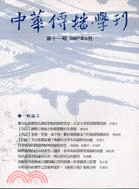 閱覽人數: 2477
閱覽人數: 2477
June
2007
No. 11
頁數:111 - 153
作者(中)
劉昌德
作者(英)
Chang-De Liu
關鍵詞(中)
專業規範 ; 倫理守則 ; 政治經濟學 ; 新聞史
關鍵詞(英)
journalistic norms ; codes of ethics ; political economy ; journalism history
中文摘要
新聞專業規範受社會形塑,而不僅是倫理觀念的體現。作為各國新聞倫理主要源頭的美國新聞專業規範,其核心概念包括「客觀性」與「社會責任論」等,是新聞場域行動者因應各時期不同政治經濟需求下的產物。台灣自戰後引進的美式專業規範,相關概念也因政經結構變遷,而在各階段受到不同轎澤與挪用。這三階段分別是:(l)1950至70年代侍從媒體形成之「侍從責任論」;(2)前者於80年代面臨伴隨政台反對力量與經濟成長出現之「政治異議論」的打挑戰;(3)90年代初政治解嚴而媒體財團力量尚未脫韁之際,相對獨立之新聞場域發展出「自主專業規範」,及至90年代後期因市場力量膨脹與國族認同政治激化等因素,而使之受到壓抑。
英文摘要
Rather than merely a reflection of ethics, the journalistic norm is an out-come of social construction. American journalism has been spread worldwide, and its core concepts--such as "objectivity," "social responsibility," and so forth--result from the actions of agents in the journalistic field that respond to the political and economic needs. In Taiwan, this set of journalistic norms has been translated and re-defined in accordance with the change of political and economic structures. This paper aims to analyze the development of Taiwanese journalistic norms throughout the three periods since the end of the World War Ⅱ, including (1) The formation of "client media's responsibility theory" between the 1950s and 1970s; (2) The emergence of "political dissidents' media ethics" which challenged the former in the 1980s; and (3) The rise and suppression of the "autonomous journalistic norms movement" from the mid 1990s to the present.